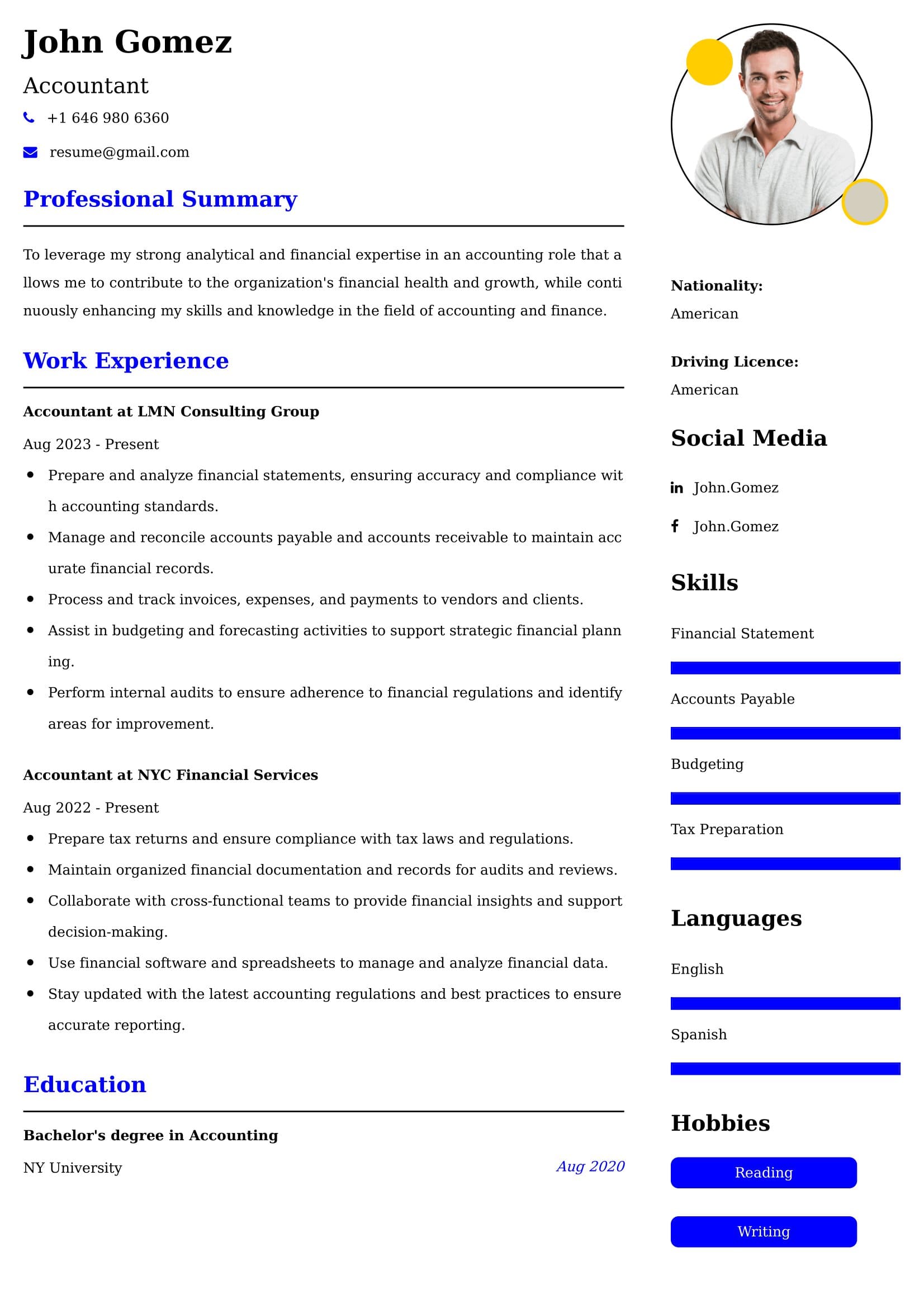Blog Detail

Quick Fix to Optimize Your Accountant Resume for Australia
Jun 7, 2024
Quick Fix to Optimize Your Accountant Resume for Australia
Introduction:
In the dynamic and competitive job market of Australia, crafting an effective accountant resume is crucial for landing a job that aligns with your skills and career goals. Your resume serves as your professional introduction to potential employers, highlighting your qualifications and experience. This article will provide a detailed guide on optimizing your accountant resume specifically for the Australian job market, offering insights into the key elements that employers look for and strategies to make your resume stand out.

1. Understanding the Australian Job Market for Accountants:
Before diving into the specifics of optimizing your accountant resume, it's essential to have a good understanding of the Australian job market for accountants. Australia has a robust economy with a diverse range of industries, and accountants are in demand across various sectors, including finance, manufacturing, healthcare, and technology.
Australian employers typically seek candidates with a strong educational background, relevant certifications, and practical experience. They also value soft skills such as communication, attention to detail, and problem-solving abilities. Familiarity with Australian accounting standards and regulations is often considered a plus.
2. Tailoring Your Resume to the Australian Format:
The format of your resume plays a crucial role in catching the eye of potential employers. In Australia, the standard format for resumes includes a professional summary, work experience, education, skills, and relevant certifications. It's important to tailor your resume to the specific requirements of the Australian job market.
a. Professional Summary:
Start your resume with a concise and impactful professional summary. This section should provide a snapshot of your professional background, highlighting key achievements and skills. Tailor this summary to the specific job you're applying for, emphasizing how your experience and expertise align with the employer's needs.
b. Work Experience:
When detailing your work experience, focus on quantifiable achievements and responsibilities relevant to the Australian market. Use the STAR (Situation, Task, Action, Result) method to showcase your accomplishments. Highlight your experience with accounting software commonly used in Australia, such as MYOB (Mind Your Own Business) or Xero.
c. Education:
List your educational qualifications in reverse chronological order, starting with your most recent degree. Ensure that you include the name of the institution, the degree obtained, and the graduation date. If you have completed any additional certifications relevant to the Australian accounting landscape, such as those from the Institute of Public Accountants (IPA) or the Certified Practising Accountant (CPA) program, be sure to highlight them.
d. Skills:
Create a dedicated section to showcase your technical and soft skills. Technical skills may include proficiency in accounting software, taxation knowledge, and financial analysis. Soft skills such as communication, problem-solving, and attention to detail are equally important and should not be overlooked.
e. Certifications:
Australian employers often value professional certifications that demonstrate your commitment to ongoing professional development. Mention any relevant certifications, such as Certified Practising Accountant (CPA), Chartered Accountant (CA), or other industry-specific certifications.
3. Highlighting Australian Accounting Standards and Regulations:
To stand out in the Australian job market, demonstrate your familiarity with Australian accounting standards and regulations. Australia follows the International Financial Reporting Standards (IFRS), and employers appreciate candidates who are well-versed in these standards. Incorporate specific examples in your resume that showcase your understanding of IFRS and how you have applied them in your previous roles.
4. Emphasizing Soft Skills:
In addition to technical skills, Australian employers place a strong emphasis on soft skills when evaluating candidates. As an accountant, effective communication, collaboration, and problem-solving abilities are crucial. Use your resume to provide concrete examples of how you have utilized these skills in your previous roles. Highlight instances where your attention to detail or analytical skills contributed to the success of a project or improved financial processes.

5. Showcasing Cultural Fit:
Employers in Australia not only look for candidates with the right qualifications and skills but also seek individuals who will fit well into the company culture. Tailor your resume to reflect your understanding of Australian workplace culture. This includes demonstrating your adaptability, openness to diversity, and ability to work collaboratively in a team.
6. Quantifying Achievements:
Australian employers appreciate quantifiable achievements that demonstrate your impact in previous roles. Use specific numbers, percentages, or other metrics to highlight your contributions. For example, mention how you implemented a new financial reporting system that resulted in a 20% increase in efficiency, or how you successfully reduced financial discrepancies by a certain percentage.
7. Networking and Professional Associations:
In Australia, networking plays a significant role in career advancement. Mention any memberships in professional accounting associations or participation in networking events. If you are a member of organizations like CPA Australia, the Institute of Public Accountants (IPA), or other relevant industry groups, include this information in your resume. Networking not only enhances your professional visibility but also demonstrates your commitment to staying connected within the industry.
8. Tailoring Your Resume for Specific Job Applications:
Rather than using a one-size-fits-all approach, customize your resume for each job application. Carefully read the job description and requirements, and tailor your resume to align with the specific needs of the employer. Highlight experiences and skills that directly relate to the job, increasing your chances of catching the recruiter's attention.
9. Utilizing Keywords:
Many Australian employers use applicant tracking systems (ATS) to screen resumes. To ensure your resume passes through these systems and reaches the hands of a recruiter, incorporate relevant keywords from the job description. This not only helps your resume get noticed but also demonstrates that your skills and experience closely match the employer's requirements.
10. Seeking Professional Assistance:
If you find the task of optimizing your resume overwhelming or if you're unsure about the nuances of the Australian job market, consider seeking professional assistance. Professional resume writers specializing in the Australian market can provide valuable insights and create a customized resume that effectively showcases your strengths and aligns with industry expectations.
Conclusion:
In conclusion, optimizing your accountant resume for the Australian job market requires a strategic approach that takes into account the specific preferences of employers in the region. By tailoring your resume format, emphasizing Australian accounting standards, showcasing relevant skills, and highlighting your cultural fit, you can significantly enhance your chances of landing your desired job. Keep in mind the importance of networking, quantifying achievements, and utilizing keywords to make your resume stand out in a competitive job market. With these quick fixes, you can present a compelling and tailored resume that positions you as a top candidate in the Australian accounting industry.
Top of Form









